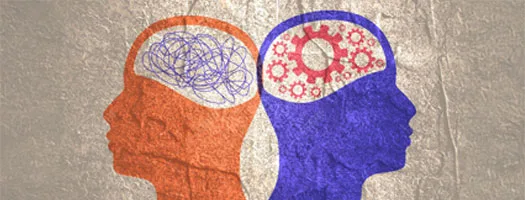Safe, Comfortable Alcohol Detox in Las Vegas
Alcohol withdrawal can be dangerous without the right medical support. At BetterChoice Treatment Center, we provide clinically supervised alcohol detox in a luxurious, private setting—helping you safely take the first step toward lasting recovery. Our Las Vegas detox program is led by medical professionals and designed to manage symptoms, reduce risks, and support your well-being every step of the way.
We Accept All The Major Insurances
Don’t see your insurance provider? Call us for a full list of insurances we accept (725) 299-4777









What Is Alcohol Addiction?
Alcohol addiction—also known as alcohol use disorder (AUD)—is a chronic, progressive condition where a person loses control over their drinking, despite negative effects on their health, relationships, and daily life. While alcohol is socially accepted and widely available, its misuse can lead to physical dependency, psychological struggles, and long-term consequences that require professional intervention.
At BetterChoice Treatment Center, we understand that alcohol addiction looks different for everyone. Some may struggle in silence while appearing functional. Others may experience noticeable life disruptions. No matter where you are on the spectrum, alcohol detox is often the first and most critical step toward recovery.
Signs of Alcohol Addiction
- Drinking more or longer than intended
- Repeated failed attempts to cut down or stop drinking
- Cravings or strong urges to drink
- Neglecting responsibilities at work, school, or home due to drinking
- Avoiding social or recreational activities in favor of drinking
- Continuing to drink despite relationship or legal problems
- Developing a tolerance—needing more alcohol to feel the same effect
- Experiencing withdrawal symptoms when not drinking (sweating, shaking, nausea, anxiety)
- Spending a lot of time drinking or recovering from its effects
- Drinking in dangerous situations (e.g., driving, swimming, using machinery)
Why Consider Alcohol Treatment
Choosing to begin alcohol detox is a life-changing decision—and one that lays the foundation for lasting recovery. At BetterChoice Treatment Center, we offer a medically supervised detox environment where your safety, comfort, and long-term success come first. Here’s why detoxing in a professional setting matters:
Distance Yourself from Triggers
Being in a structured inpatient detox setting removes you from the environments, people, and routines that may have fueled your drinking. This gives you the space to focus fully on healing—without distractions or temptations.
Higher Success Rate
Alcohol withdrawal can be physically and emotionally intense. Trying to detox alone often leads to relapse. Our supervised detox program offers 24/7 support and evidence-based care that significantly increases your chances of a successful recovery.
Get Personalized Medical Attention
Every person’s experience with alcohol addiction is different. Our licensed medical staff monitors your symptoms and adjusts treatment based on your health history, withdrawal severity, and overall needs—ensuring you receive the safest care possible.
Long-term Support System
Detox is only the beginning. At BetterChoice, we don’t just help you get through withdrawal—we prepare you for what comes next with counseling, relapse prevention planning, and referrals to continued care through our inpatient rehab program.
Holistic Treatment Approach
We go beyond the basics of detox by incorporating holistic therapies like nutrition support, yoga, mindfulness, and trauma-informed counseling. You’ll heal your mind, body, and spirit—not just your symptoms.
What's Included In Our Program
At BetterChoice Treatment Center, our alcohol detox program is more than just a clinical process—it’s a comprehensive experience designed to support you emotionally, mentally, and physically. Here’s what you can expect when you begin your recovery journey with us:

Individual Therapy
You’ll meet one-on-one with a licensed therapist to explore the root causes of your addiction, develop healthier coping skills, and create a personalized plan for lasting recovery. This is a safe space to work through past trauma, stress, or mental health concerns.

Group therapy
Healing happens in community. Group sessions provide a chance to connect with others facing similar challenges, share experiences, and learn from one another in a structured, guided environment led by a qualified facilitator.

Family Therapy Sessions
Addiction affects more than just the individual. Our program includes family therapy to help rebuild trust, improve communication, and educate loved ones on how to best support your recovery journey.

24/7 Supervision and Care
Your safety is our priority. Our medical and clinical staff are available around the clock to monitor your symptoms, manage withdrawal, and offer emotional support throughout your detox process.

Dual Diagnosis
Many people struggling with alcohol addiction also face co-occurring mental health issues like anxiety, depression, or PTSD. Our dual diagnosis services ensure both conditions are treated simultaneously, giving you a better foundation for long-term success.

Lots of Fun Activities
Recovery doesn’t have to feel like punishment. You’ll have access to a variety of indoor and outdoor activities—like yoga, fitness, games, and relaxation by the pool—that support mental wellness and help you rediscover joy in daily life.
Common Alcohol Withdrawal Symptoms
Know What to Expect During Detox
The intensity of withdrawal depends on the duration and severity of alcohol use. Symptoms can begin within hours of your last drink and typically peak between 24–72 hours.
Common Symptoms Include:
- Nausea and vomiting
- Sweating and shaking
- Anxiety and depression
- Insomnia and fatigue
- Headache and irritability
- Elevated heart rate and blood pressure
- Hallucinations
- Seizures or delirium tremens (in severe cases)
Our alcohol detox program is designed to monitor, manage, and ease these symptoms with medical interventions, hydration, rest, and round-the-clock care.

Why Alcohol Detox Is Necessary
Why You Should Never Detox from Alcohol Alone
Unlike many substances, quitting alcohol abruptly can lead to severe and even life-threatening withdrawal symptoms—especially if you’ve been drinking heavily or for an extended period of time. Attempting to detox on your own increases the risk of seizures, delirium tremens (DTs), and other medical complications.
That’s why medically supervised alcohol detox is essential. At BetterChoice, your safety is our top priority. We offer 24/7 monitoring, symptom management, and compassionate support in a peaceful, upscale environment.
Heal In Comfort And Privacy
Luxury Alcohol Detox Environment
- 198 Ebb Tide Cir, Las Vegas, NV 89123


Our Las Vegas facility is more than just a detox center—it’s a retreat for physical and emotional renewal. Clients detox in a peaceful setting with upscale amenities, compassionate staff, and personalized care.
Amenities Included
- Nutritious, gourmet served meals
- Private or semi-private rooms
- Jacuzzi-equipped bathrooms
- Yoga, sound bath, and holistic wellness therapy, and massage
- Tropical pool, outdoor gardens, and quiet lounges
- Medical supervision 24/7
We’re more than a detox center—we’re a place to feel safe while you begin your new chapter.
What Happens After Alcohol Detox
Transitioning from Detox to Rehab
Alcohol detox is only the first step toward recovery. To maintain sobriety and avoid relapse, ongoing therapy and mental health support are essential. At BetterChoice, we help you transition directly into our inpatient rehab program, where you’ll explore the underlying causes of addiction and develop lifelong coping tools.
Our team will guide you through a personalized treatment plan that includes:
- Cognitive Behavioral Therapy (CBT)
- Dialectical Behavioral Therapy (DBT)
- Dual diagnosis treatment
- Trauma-informed care
- Family therapy
- Aftercare planning

Meet Our Expert Team

Brian Kaszuba
Doctor/Medical Director

Briana Theocharides
Lead Tech/Operational Manager

Gregory Lange
BHT

Jim Jobin
Clinical Director/LMFT

Jamie McAller
Mental Health Counselor

Wyconda Hopkins
CADC

Ani Alvadzhyan
Quality Assurance
Frequently Asked Questions
Is alcohol detox dangerous?
Yes, alcohol withdrawal can be dangerous—especially for individuals with long-term or heavy use. Severe symptoms can include seizures, hallucinations, or a life-threatening condition called delirium tremens (DTs). That’s why medically supervised alcohol detox at a licensed facility like BetterChoice is essential for safety.
How long does alcohol detox take?
Alcohol detox typically lasts between 5 and 10 days. Symptoms usually begin within 6–12 hours after the last drink, peak within 48–72 hours, and gradually subside. The timeline can vary depending on the severity of the addiction and individual health conditions.
Can I detox from alcohol at home?
Detoxing at home is not recommended for alcohol dependency due to the risk of dangerous withdrawal symptoms. Professional care ensures safety, monitors for complications, and provides medication-assisted treatment to ease discomfort and cravings.
Will I get medication during alcohol detox?
Yes. Depending on your symptoms and history, medications such as benzodiazepines or anti-seizure drugs may be administered to help reduce withdrawal severity, prevent complications, and improve comfort.
What are the first signs of alcohol withdrawal?
Early signs can include anxiety, sweating, shaking, nausea, irritability, and insomnia. More severe symptoms, such as hallucinations, seizures, and confusion, may follow in high-risk cases, especially without medical care.
What happens after detox?
Detox is the first step, but lasting recovery requires psychological healing and relapse prevention. After detox, clients at BetterChoice can transition directly into inpatient rehab for therapy, support, and structured recovery planning.
Does insurance cover alcohol detox?
Most health insurance plans offer coverage for alcohol detox and rehab services. Our admissions team is available 24/7 to verify your benefits and walk you through the intake process confidentially.
Alcohol Use & Addiction Statistics
29.5 million people aged 12 and older in the U.S. had alcohol use disorder (AUD) in 2021.
(Source: National Institute on Alcohol Abuse and Alcoholism, part of NIH)
Over 140,000 people die annually from alcohol-related causes in the U.S.
(Source: NIAAA, 2022 Report)
Only about 10% of people with alcohol use disorder receive any form of treatment.
(Source: National Institute on Drug Abuse, referencing NSDUH data)
Begin Alcohol Detox Safely
Start Alcohol Detox Today—with the Support You Deserve
If you or a loved one is ready to stop drinking but worried about the risks of withdrawal, we’re here to help. At BetterChoice, we make alcohol detox safe, effective, and comfortable.
Our admissions team is available 24/7 to answer questions and get you started—confidentially and without judgment.



